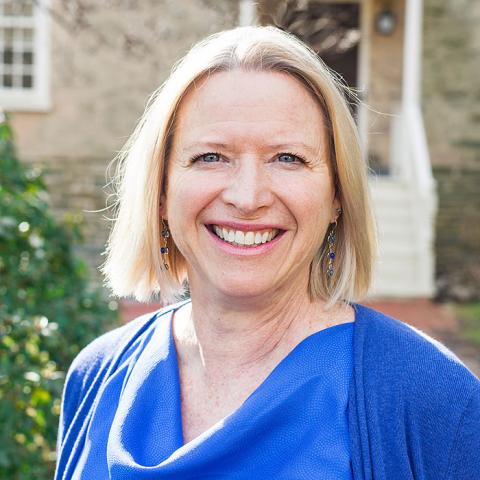Spotlighted Economics Student: Claire Cai '21

Details
Double majoring in German and Economics, Claire Cai's '21 thesis interweaves German socio-politics with an economic analysis.
After working with an exceptional AP Microeconomics and Macroeconomics teacher at her high school, Claire Cai ’21 knew she would study economics in college. She also credits her German teachers in middle school and high school for nurturing her love for the language and literature. Her double major in German Studies and Economics blend and mesh well with the research classes she’s taken at both Haverford and Bryn Mawr Colleges.
Claire first learned about Haverford College through family friends who own Maido, a Japanese restaurant and grocery store near the college. She was also drawn to the combined offerings of a small liberal arts college, rigorous athletics, and exceptional academics. Seeking the personal connection that small schools can provide, one of the highlights of her time at Haverford has been the close interactions with professors. She came from a competitive high school that was not particularly collaborative, so Haverford’s culture of trust, concern, and respect was attractive and reassuring. She has developed a deep fondness for the cooperative nature of the student body at Haverford, further deepened by the significant role that the Honor Code lends.
Claire has enhanced her course work with summer internships and additional education opportunities. Last summer, she was employed by PNC Financial Services as a Treasury Management Intern. One of her key roles was compiling and presenting research to financial advisers and other PNC employees. In addition, while attending lectures and training sessions, she developed a broader understanding of the many functions of a bank.
The summer following her sophomore year, Claire worked in Princeton, New Jersey at Schoenefeld Law Firm. As a legal intern she handled clerical matters using sophisticated tracking systems. She also organized files, conducted research, and interfaced with clients. A poignant project was working on a many years old case that wrapped up during her time there.
After her freshman year, Claire was accepted by Humboldt University in Berlin to attend their Summer University. She was eager to return to Berlin, where she later spent a few weeks during her junior year’s spring semester for a study abroad program. Until the cancellation of onsite studies due to COVID-19, she enriched her abroad experience through extracurricular activities such as fencing at the Charlottenburger Fecht-Club. Completing her course work remotely impeded the quintessential immersion experience, but she nevertheless enjoyed the courses she took. The classes she enrolled in helped to supplement the Haverford classes she has taken. For instance, she took German Social Market Economy, a course that examines the historical and theoretical formation of the modern German economy.
Claire’s thesis interweaves German socio-politics with an economic analysis. Her thesis abstract states “Since 2005, the German government has administered integration courses to better support refugees and other migrants. Between 2010 and 2015, enrollment in these integration courses doubled to around 180,000 participants, and Chancellor Merkel's 2015 decision to admit more than one million refugees increases the importance of these courses. There are several types of integration courses, and some are dedicated to specific demographics such as youth and parents. Examples of course content include German history, civilian rights, and the country’s legal system. These courses also build proficiency in the German language. For my thesis, I will be quantifying the benefits for adults who complete any integration course run by the German Federal Office for Migration and Refugees. Specifically, the benefits that I evaluate are wage gains and improvements in a person's national, social, civic, economic, educational, and linguistic integration. I hope that my research will show the critical importance of support for refugees and migrants.”
Outside of academics, Claire has been Captain of the Women’s Fencing Team, German Department Major Representative, member of the Appointments Committee, Budgeting Committee, and Student Council as Officer of Athletics. She also worked in Quaker Special Collections before the renovation of Lutnick Library, formerly Magill Library.
This March she will present remotely at the Northeast Modern Language Association Conference where she will expound upon the necessity of interdisciplinarity in her presentation titled “Class Alienation in Gerhart Hauptmann’s ’Lineman Thiel’ (1888): An Economic and Literary Analysis”. Post-graduation, Claire would like to engage in some combination of public policy, legal studies, and teaching. Having worked as a teaching assistant for the Economics and German Departments, she is devoted to creating classrooms with inclusive, diverse, and accessible pedagogy. For her future, she dreams of working in refugee advocacy or entering academia for German Studies or Education Studies.




